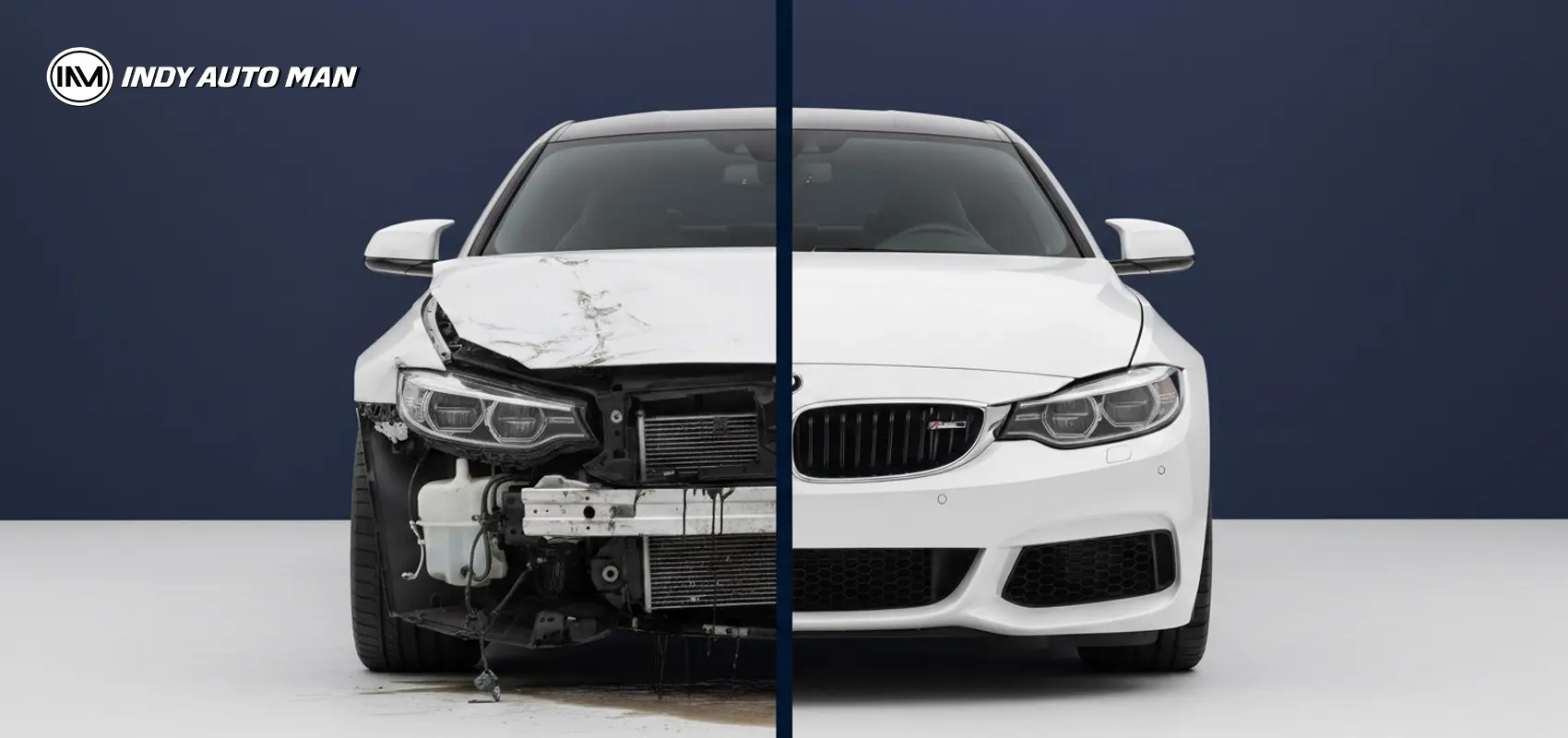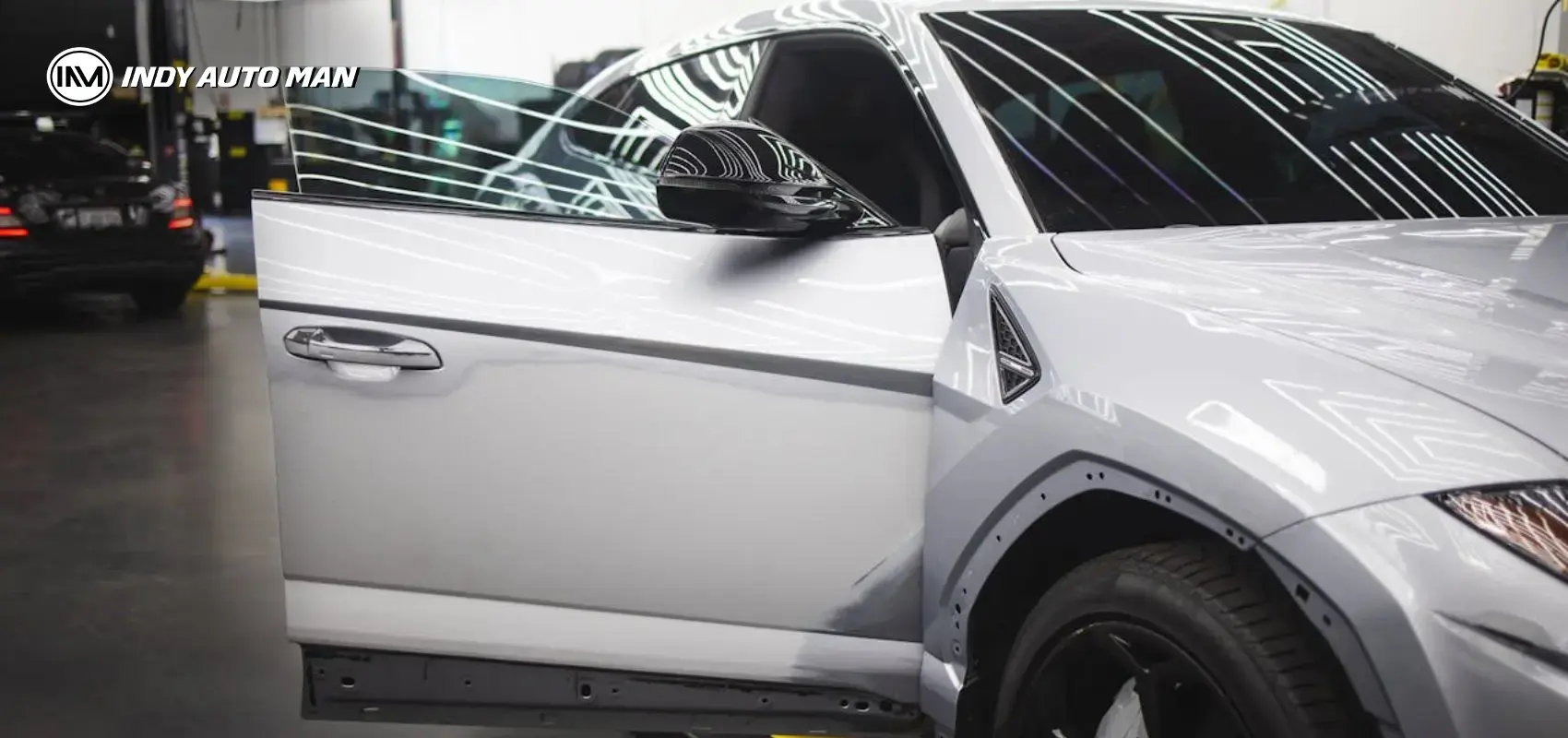Rebuilt Title Meaning: Savings or Troubles?
Table of Contents
- Rebuilt Title vs. Salvage: What's the difference?
- How can I find out if a vehicle has a rebuilt title?
- Pros and cons: Is buying a car with a rebuilt title worth it?
- What are the risks of buying a vehicle with a rebuilt title?
- Low resale value of used cars with rebuilt title
- Difficulties with getting a loan
- Voided car warranty
- Insurance challenges: Are rebuilt titles hard to insure?
- Should I buy a rebuilt car in Indiana?

If you are looking for the best value on the used car market of Indiana, the phrase "rebuilt title" may have caught your eye. But what does it mean to have a rebuilt title when buying a used car?
Rebuilt titles on vehicles indicate a turbulent past. While a car may appear in good condition outside, poor repairs after an accident can lead to serious problems. Today, the Indy Auto Man Indiana dealership specialists reveal the rebuilt title meaning to help you decide whether such a car is worth buying.
Rebuilt Title vs. Salvage: What's the difference?
The difference between a salvage and rebuilt title lies in the car's condition. If the vehicle has a salvage title, it is damaged; if it receives a rebuilt status, it was repaired and became road-legal.
There are some similarities between a rebuilt and salvage title, although each applies to different stages of the restoration process.
- Once the insurer declares the loss, the vehicle is classified as a salvage. It may be sold for parts or scrap metal. Salvage title statuses are issued for reasons other than serious collisions, like flood, fire, vandalism, theft, or hail.
- Once a car with a salvage title has been repaired, the owner can take it to the Indiana Department of Motor Vehicles for a thorough inspection. The rebuilt title means the vehicle was deemed roadworthy again.
To better understand the specifics of vehicle title statuses, you can learn our guide to branded titles.
How can I find out if a vehicle has a rebuilt title?
You can check if a vehicle has a rebuilt title by obtaining its vehicle history report through services like Carfax or AutoCheck. These reports provide information on the vehicle's title status, accident history, and any branding such as "rebuilt," "salvage," or "total loss."
At Indy Auto Man, you can get a free CARFAX reports before buying a vehicle from our car lot.
Pros and cons: Is buying a car with a rebuilt title worth it?
In most cases, the rebuilt car costs less than a similar model with a clean title. But before falling for a low price tag, you should weigh all the pros and cons.
Rebuilt cars may be worth the risk if the damage was minor and the owner replaced only expensive parts the insurance company refused to cover. It may have common car problems, but nothing critical. But if the entire body is warped, it is better to look for other options. When buying a rebuilt car, it is crucial to check the VIN. If you are uncomfortable inspecting the vehicle, we recommend consulting with a professional mechanic.
But even if the technical condition is decent, you may face other challenges as a rebuilt title owner.

What are the risks of buying a vehicle with a rebuilt title?
Buying a vehicle with a rebuilt title can come with risks, including potential hidden damage, compromised safety, and lower resale value. Here's what you should pay attention to:
Low resale value of used cars with rebuilt title
A rebuilt title means a vehicle has a checkered history, which lowers its market value. A reconstructed car is hard to resell, so most dealerships will not accept it as a trade-in.
Difficulties with getting a loan
Financing rules do not apply to vehicles that are reported as salvage. Due to concerns about the repair history or road-readiness, some banks may be reluctant to finance a rebuilt car. Lenders willing to cover a rebuilt title typically provide very high interest rates and very short-term financing.
Voided car warranty
Declaring a car as a total loss or a salvage usually voids the manufacturer's warranty. This means that, even if the vehicle is almost new, you may be liable for expensive repairs from hidden damage.
Insurance challenges: Are rebuilt titles hard to insure?
Insurance companies often refuse to cover rebuilt title vehicles due to the difficulty in accurately assessing the extent of prior damage. Some insurers may only provide liability coverage after major repairs.
A vehicle considerably depreciates when it receives a rebuilt title, indicating it is no longer in its original, undamaged condition. Additionally, insurance companies will view a rebuilt title vehicle as a higher risk on the road due to the possibility of hidden damage.
Once you find an insurer willing to cover a restored vehicle, you may be asked to provide additional evidence that will convince them to cover your car. This may include a statement from a qualified technician, photographs of the current condition, or repair invoices. When purchasing a rebuilt title vehicle, you should request the seller to pass the documentation that proves the car has been repaired and is in good working order.
Should I buy a rebuilt car in Indiana?
Investing in a used vehicle that has been rebuilt can pay off in some situations. But for an average Indianapolis motorist, it is not worth the risk.
A used car purchase doesn’t have to come with a headache. Visit the Indy Auto Man dealership to explore our extensive selection of reliable and affordable used vehicles. Discover our financing options and trade-in offers to secure the best deal in Indiana!
Pre-owned
Pre-owned
Pre-owned
Pre-owned
Pre-owned
Pre-owned
Pre-owned
Pre-owned
Pre-owned
Pre-owned
Pre-owned
Pre-owned
Pre-owned
Pre-owned
Pre-owned











































































